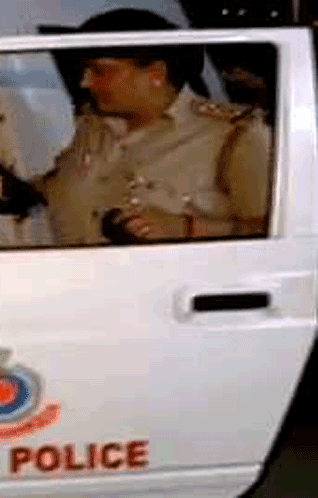People
Surinder Kaur: A Sikh-Indian Cop Takes Charge
by SUMNIMA UDAS
Police officer Surinder Kaur is on a mission.
“I want no minor girls working here, no one should be forcibly working here … I want to shut down this [red light district],” she says.
As the Station House Officer of an area that includes New Delhi’s largest red light district - G.B. Road - Surinder Kaur knows it won’t be an easy job.
Since she became the officer in charge of G.B. Road two years ago, she has rescued 89 minor girls. Prior to her posting, only four or five girls had been rescued.
A desk full of awards and “thank you” messages stand testimony to her achievements.
“Previously, everyone thought the police is involved with the brothel owners … so nobody passed any information to the police. But when I took over, I took it as a challenge. I decided I will definitely do something different and I developed faith in the public for me and my police force,” Surinder Kaur says.
A rescue of 9 girls
More than 2,000 prostitutes are estimated to live and work in New Delhi’s G.B. Road.
It’s not illegal for women 18 and older to work as prostitutes here, but many are underage and most are illegally trafficked from all parts of India and neighboring Bangladesh and Nepal.
“We concentrate on minor girls because the trafficking issue is about minor girls only. They are being brought from Nepal, they are being brought from other parts of India in the name of giving them jobs, but they are illegally brought here,” Deputy Commissioner of Police Aslam Khan says.
Just a few weeks ago, Surinder Kaur and her team raided a brothel on G.B. Road after they were tipped off by an anti-trafficking group that minors were working there.
She rescued 9 girls, all of whom she says looked under the age of 18. Six of them were from Nepal.
The girls were sent to Nirmal Chhayaa, a government shelter where medical tests are conducted on suspected minors to determine their age. Test results for 5 of the 9 girls have been released so far confirming they are minors.
One victim is as young as 10 years old, according the Mumbai-based anti-trafficking group, the Rescue Foundation.
“I have already registered a case and we have arrested the brothel manager,” Surinder Kaur says. “We are now looking for the brothel owner.”
The brothel manager she arrested is a 38-year-old Indian woman whose identity she could not reveal for legal reasons.
A surprise visit to a brothel
The police have arrested 27 brothel owners in this area in the past 2
years. Khan, the police deputy commissioner, says they conduct an
average of one raid a month.
One recent night, CNN followed Officer Surinder Kaur on one of her evening patrols.
Each night around 11 p.m., she and her team drive around the red light district to make sure police officers are manning the gates and sometimes they make a surprise visit to the brothels.
The area is normally inaccessible to outsiders. Even non-governmental organizations have hesitated to take the media there, and brothel owners have attacked cameras in the past.
But this time, CNN was with a police officer who is very much in charge of the area.
She took us up some dark and dingy stairs. The remains of chewed betel nut laced the walls, rats scurried around and men who were inside the brothel ran out and hid as soon as they saw the group.
She knocked on the door several times, and five minutes later, the women inside greeted her warmly but covered their faces as soon as they saw us.
She asked them if anyone wanted to come away with her. They all said “no.”
None of the prostitutes we met were minors. They said they wanted to be there.
“Please don’t give this place a bad name, to us it’s a temple, it's what feeds our families,” said one of the prostitutes. “We have no choice. You won’t understand.”
Why not just shut down the place?
“I can’t force women to leave if they want to be there,” Surinder Kaur says. “Then where will they go? I can’t send them to the streets.”
After many years in the business, this had become their way of life.
However, if there’s proof a minor girl is being forced to prostitute herself, the police will act immediately.
Anti-trafficking groups say rescue efforts are becoming more common in India as police make them a priority.
President of the Rescue Foundation, Triveni Acharya - who has been working in this field for the past 18 years - says she’s seen a “historical change” in the way authorities are handling trafficking cases.
“Previously, when we call police they say no, we have no staff,” she explains. “But now, if we call with a tip-off, they say no problem, please come.”
The police have also become more sensitized toward the prostitutes.
“Earlier they’d talk to the girls rudely, use foul language, now when they rescue the girls they talk to them with respect. They say, come on child, dress properly, and come with us.”
Acharya says the police officers are now seeing the girls as victims instead of criminals, and that’s the biggest change.
“Rescuing minor girls and minor children has become our top priority,” Surinder Kaur says. “It’s the demand of the 21st century, we have to change.”
[Courtesy: CNN. Edited for sikhchic.com]
August 8, 2011



